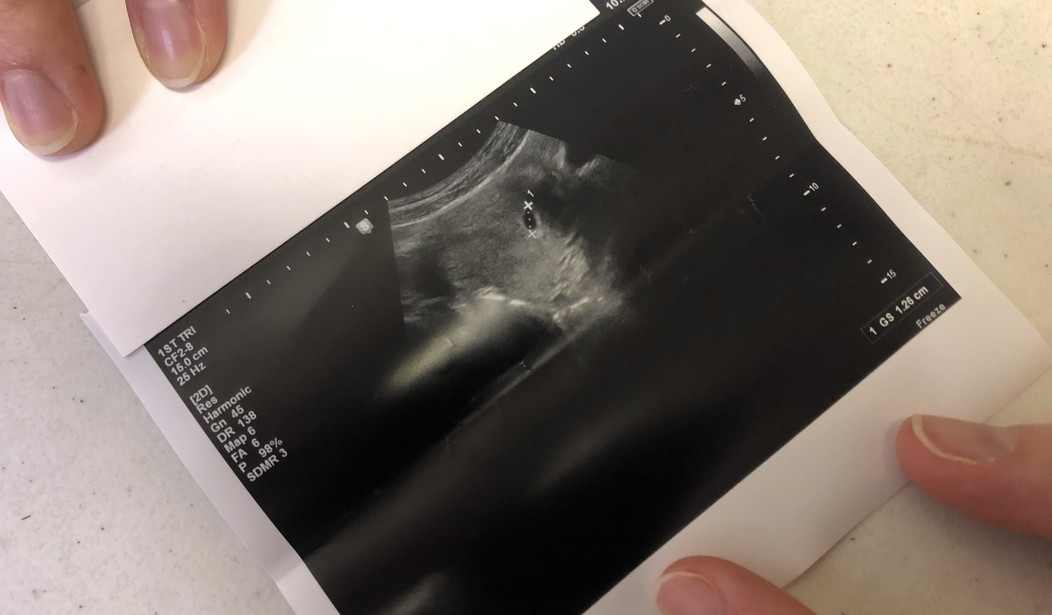I can’t recall a time when the mainstream media, celebrities, and left-wing types have been so dishonest about a public policy issue. I’m referring to the hysterical claims that the Dobbs decision—which sent the issue of regulating abortion back to the states—would somehow criminalize women who have miscarriages or ectopic pregnancies.
Here’s one such assertion from a blue-check “law professor”:
Consider this. Around one million women have miscarriages every year. Now in many states they will be suspected of and even charged with a crime if anyone finds out. And those who desperately need a d&c in order to survive the miscarriage will be denied that medical treatment.
— Jennifer Taub 🌻 🇺🇸 (@jentaub) June 26, 2022
Another from a Twitter user with more than 200k followers:
I’ve said it once, and I’ll say it a thousand times: The treatment for an ectopic pregnancy, a septic uterus, or a miscarriage that your body won’t release is abortion. If you can’t get those abortions, you die. You. Die.
— Andrea Junker (@Strandjunker) June 24, 2022
This activist claims that women will be arrested for having miscarriages. She instructs them on how to “self-manage” their abortions by popping a bunch of pills. Oh, and if they have to go to the emergency room, “Don’t say s**t. You’re having a miscarriage because they don’t know the difference.”
“We keep us safe,” she declared, even though lying to ER doctors about ingesting powerful medications seems like a really, really bad idea.
“It’s also important that you show up in 4–9 months and someone is arrested for their still-birth or miscarriage or self-managing their abortions. We know who is going to be the ones arresting us.”@RBraceySherman on protocols to self-manage abortions & avoid arrest #RoeVsWade pic.twitter.com/5aSSPaZJLy
— ChuckModi (@ChuckModi1) June 26, 2022
Sadly, a lot of women are buying these lies. But here’s the truth: There is no law, nor will there ever be, that punishes women whose babies die through no fault of their own or who develop an ectopic pregnancy or a septic uterus.
Related: Are LGBTQ Rights and Contraceptives in Danger With the Repeal of Roe?
Dr. Brent Boles, a Tennessee OB-GYN, noted that in 30 years of practice he has never had to intentionally kill a baby to save the life of a mother. And even if he would have at some point been faced with that decision, “saving women with miscarriages and ectopics also isn’t abortion.”
30+ years of delivering thousands of babies and I’ve never had to intentionally kill a fetus to save a mom, and never lost a mom who would have been saved by an abortion. It’s never needed to save a woman’s life, and saving women with miscarriages and ectopics also isn’t abortion
— cbrentboles (@cbrentboles1) June 2, 2022
Truth. Indisputable truth. https://t.co/MQMWrpbdxU
— cbrentboles (@cbrentboles1) June 14, 2022
Boles also shares a devastating truth about women who show up at the ER with a “septic uterus”:
Lots of disinformation about ectopic and miscarriage care, and lots of use of the term ‘septic uterus’. Where do the majority of septic uteri come from? In 30 years of doing GYN, the vast majority of septic uteri I have cared for were post-abortion complications.
— cbrentboles (@cbrentboles1) June 26, 2022
Dr. Christina Francis, a board-certified OB-GYN, said in a recent video: “Let’s be clear about one thing: Treating ectopic pregnancies or miscarriages is not an abortion. I think it’s really important that we clear up this misconception that’s out there that if a state outlaws abortion, it will prevent physicians like me from taking care of women with ectopic pregnancies or miscarriages.”
Let's be clear: treating ectopic pregnancies is NOT an abortion. pic.twitter.com/34hIzHjgIC
— AAPLOG (@aaplog) May 20, 2022
“How do I know this isn’t the case? ” she asks. “Because in my entire career I’ve never needed to perform an elective abortion, and yet I’ve been able to take care of women with ectopic pregnancies and miscarriages.”
Francis, who completed her residency program at a Catholic hospital that didn’t perform abortions, said, “I treated ectopic pregnancies throughout my residency.”
She currently works at a hospital that does not do abortions and has never been hindered in her “ability to take care of a woman with an ectopic pregnancy.”
“We are pro-life in all circumstances, which means we save who we can,” Francis explained. “In the rare situation in which a woman’s life is in danger, my job as a physician is to intervene and save her life. However, I can do this in a way that does not intend the ending of the life that’s developing inside of her.”
“Treating an ectopic pregnancy or miscarriage is not an abortion,” she said. “And my ability to treat these conditions would not be hindered by a state outlawing abortion.”
Dr. Ingrid Skop, M.D., F.A.C.O.G., a board-certified OB-GYN who serves as senior fellow and director of medical affairs at Charlotte Lozier Institute, wrote in a fact sheet on the topic:
In these cases [interventions in the second half of pregnancy] the purpose of delivery is not to kill the fetus, as in elective abortion, but to save the life of the mother and the life of the fetus, or to save the life of at least one of them. This can be done in such a way, induction or C-section, that the baby is given an opportunity, even if slim, to live, while addressing the mother’s health risks. With modern surgical techniques, a C-section delivery is usually very safe, even in an extremely sick woman. (One out of three pregnancies in our country are delivered this way.) By comparison, a dilation and evacuation (D&E) dismemberment abortion (the technique used to perform 95% of late abortions may necessitate several days of cervical preparation to allow the surgeon to enter the uterus.
She noted that “many states, including Texas, specifically exclude treatments for ectopic pregnancy from the state definition of induced abortion.”
Skop dispelled the disinformation about laws banning induced abortions:
Abortion advocates in the media sometimes predict that physicians in states with restrictive abortion laws will be unable to treat women suffering spontaneous abortions (miscarriages) because the treatments are similar to provision of early induced abortions. This should immediately be recognized for the fearmongering it is. Once diagnosed, an early pregnancy loss can be treated in several ways: expectant management (watchful waiting) may be employed if the miscarriage appears to be occurring naturally, a dilation and suction procedure removes the tissue in a minor surgery, or medications to cause uterine contractions may be given to hasten the process. Misoprostol is often used because it is readily available, but those with access to mifepristone (the restricted component of the medical abortion regimen) sometimes add that to misoprostol for miscarriage management. It should be noted that mifepristone is dispensed under a Food and Drug Administration (FDA) Risk Evaluation and Mitigation Strategy (REMS), so only registered abortion providers have access to mifepristone for prescribing chemical abortion. Texas’ definition of abortion explicitly excludes miscarriage management, as do the definitions of many other states.
The bottom line: The Dobbs decision and the end of Roe v. Wade will not criminalize women who suffer miscarriages or ectopic pregnancies.










Join the conversation as a VIP Member